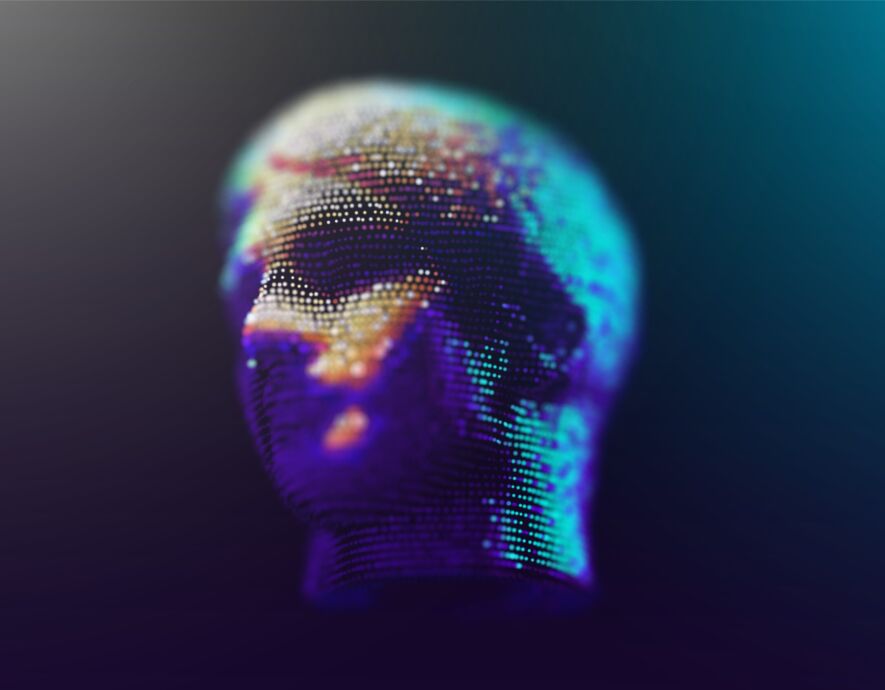
- Home
- Digital transformation
- Metaverse: the next version of the internet is on its way and Europe does not seem to be interested
Metaverse: the next version of the internet is on its way and Europe does not seem to be interested


The term ‘metaverse’ originated in the science fiction of the 1990s and means the joining of the physical and virtual worlds. For many commentators and instigators, this is the future of the internet. Gone are the websites and mobile applications as we know them: welcome to the metaverse.
We have had the personal computer and the first game consoles in the 1980s, the internet and the Web in the 1990s, the mobile phones in the 2000s, and the explosion of social networks, e-commerce, and instant communication tools in the 2010s, in parallel with the advent and massive use of the cloud. All these changes have been made possible by the combination of an increasing number of machines that had become more compact, cheaper, and more powerful with network capabilities that have allowed the largest number of people to access to all these services at any time and from any place . We are now connected 24/7, whether it be for personal or professional use. And the new constellation of satellites launched by Elon Musk or other wealthy entrepreneurs clearly shows that the goal is to connect at high speed the whole world and every single citizen.
At the same time, the gaming industry has benefited from these increased machine capabilities, very high speed networks, and ever more advanced high-resolution screens at lower and lower price (8K resolution today, knowing that our eye is at 16K…). It now offers « gamers » visual quality, fluidity, and almost cinematographic scriptwriting. Furthermore, in the last few years, 3-D glasses or headsets have appeared to make the experience completely immersive, at least as far as sight and hearing are concerned (with, for instance, Meta Oculus glasses, Rayban/Meta agreement, Microsoft Hololens…). In the future, solutions for touch and smell will undoubtedly be developed.
Another element that has accelerated this new transformation is the COVID-19 pandemic and its consequences with lockdown and the advent of teleworking, which is on the verge of becoming the norm. The digital transformation of businesses has accelerated and the use of video-conferencing tools has become the default option for meetings, pushing the suppliers of these tools to innovate more and more to make meetings as “real” as possible.
The latest contribution are the blockchain and cryptocurrencies, which are opening the doors to a decentralised internet and finance sector. It has not escaped anyone’s attention that Facebook—through its Libra project, which was rejected by the U.S. authorities and has since been abandoned—wanted to launch its cryptocurrency, which would have been the currency for its metaverse.
That was all it took to revive the metaverse. The first laboratories were Canal+’s Le Deuxième Monde (The Second World), launched in 1997 and stopped in 2001, and then Second Life, initiated by Linden Lab in 2003, which enjoyed a certain success with several million users. But today, the major global technology figures are the ones that make offers, both for the general public and for professionals, and that are transforming themselves to embrace this brand new land of milk and honey. Goodbye Facebook, long live Meta, its « Horizons » (Horizon Home, Horizon Workrooms, and Horizon Worlds) and its « AI Research SuperCluster » supercomputer, the basic building block of this transformation. With « Mesh for Teams », Microsoft is not to be outdone to create virtual 3-D meeting rooms that everyone can join with their avatar, but also augmented reality offers for businesses; and very recently, the $68-billion acquisition of the games publisher Activision Blizzard, a company that until 2016 was majority owned by Vivendi until it sold its stake for just over $1.1 billion… Another initiative to consider is Nvidia Omniverse, launched by Nvidia—the world leader in graphics boards—to help companies improve collaborative design via virtual universes and/or factories. Lastly, the latest rumours of Apple launching a virtual reality headset and augmented reality glasses in late 2022 or 2023 only make this shift more believable. It is also clear that Google (creator of the late Google Glass) and Elon Musk (through Neuralink and the possible brain/machine interface) will enter this market.
Alongside these big actors, hundreds of startups have emerged over the last five years to launch « vertical » metaverses such as virtual concert halls and worlds where you can play games, meet other people/avatars, play sports, visit museums, acquire land, build, trade, and so on. For example, a plot of land was recently purchased for the equivalent of $2.4 million on the Decentraland platform (purchase made in Ethereum, the reference cryptocurrency on these new platforms). At the same time, Carrefour bought a plot of land on Sandbox and will collaborate with Meta to develop an application bringing together all its services. Balenciaga has also signed a partnership with Epic Games and its game Fortnite, and Gucci with Roblox, thus bringing the world of luxury and fashion into games and the metaverse. Art is not left out, with the surge of NFTs (Non-Fungible Tokens) and digital artworks that are traded at a high price on platforms such as Opensea or Rarible (to name only two).
However, this transformation—like many before, including that of the internet in the 2000s—comes along with its share of excesses, bubble-like speculation, unproven or immature innovations (for instance, purchasing an NFT actually gives you the ownership not of the work but of an URL that is written into the blockchain).
We can also easily envisage very significant impacts on privacy and consequently on cybersecurity: the collection of data—including sensitive data—will literally explode in these virtual worlds because our smallest deeds and gestures will be collected and exploited, whether in the private sphere or in the professional world. This will raise many questions about the confidentiality and protection of each person and will undoubtedly arouse the desire of hackers. By relying on the blockchain, these worlds will be a unique opportunity to create avatars that will not be identifiable nor traceable in the real world and will therefore be able to commit crimes without fear. We can therefore expect an explosion of social engineering, phishing, and other hacking techniques in these virtual worlds, and certainly an explosion of fraud, which is already very present on NFT platforms (piracy of artworks, identity theft, etc.).
Despite all these issues and speculative excesses, there is no doubt that metaverses will become part of our lives in the next few years and have a significant impact. Unfortunately, I don’t hear many French or European voices speaking out on this subject, and I even get the impression from some of the speeches made by our politicians and opinion leaders that they do not take this transformation seriously, just as they did not take seriously the internet at the end of the 1990s, the emergence of social networks in the mid-2000s, and the mobile phone as a new extension of our person. Today, we are suffering the consequences of their lack of vision: Europe does not control any of the strategic elements of this new world, such as operating system, search engine, application stores, social networks, web browsers, or voice assistants. We are entirely dependent on the American Big Five and/or the Chinese BATX. This raises serious issues about the sinews of war: sovereignty and data control. Yet, no European company is able to compete.
The question is therefore to know whether Europe and France do not wish to learn from recent history and will only become a space for the consumption of U.S. or Chinese technology, responding to possible excesses only through regulation or fines; or, on the contrary, whether we consider that it is imperative to build and finance European companies, rich in creative and enterprising geniuses, which will reflect our differences, better protect our fellow citizens and companies, and guarantee our sovereignty over information and technologies. In the latter case—which is of course my wish—we must act quickly and ambitiously finance projects that will be credible alternatives and potential leaders of the metaverse in the next few decades. On this subject, the current French presidential campaign offers absolutely no vision and no ambition. It is a pity because the powerful people of today are unfortunately no longer the politicians but the internet giants that imagine and shape the world of tomorrow, reducing us to the status of consumers and spectators. Don’t say you weren’t warned!
the newsletter
the newsletter


